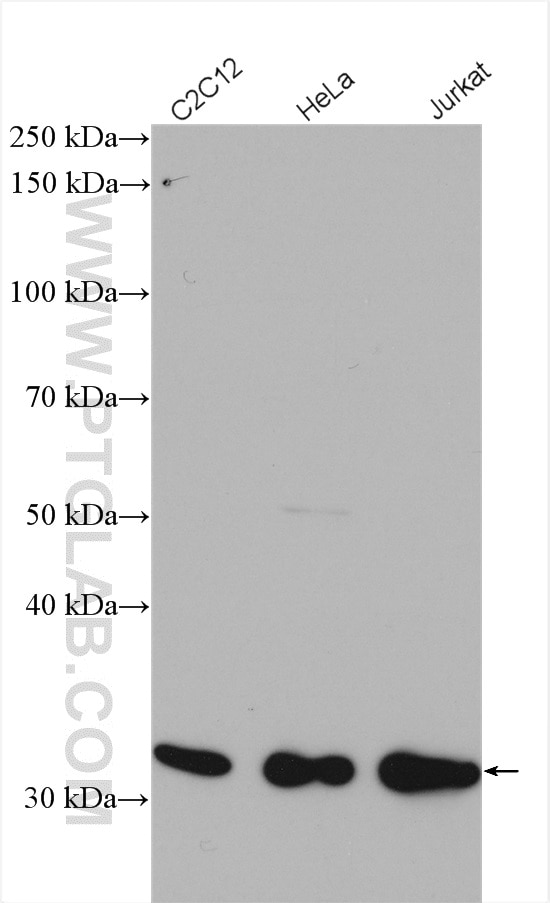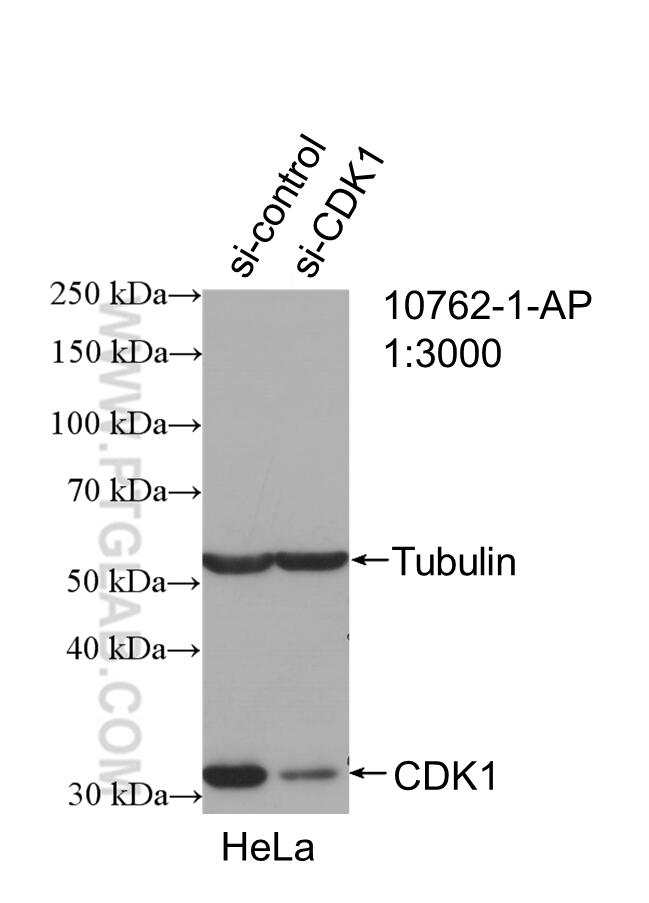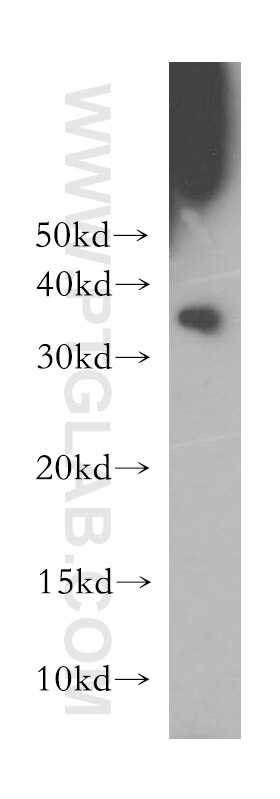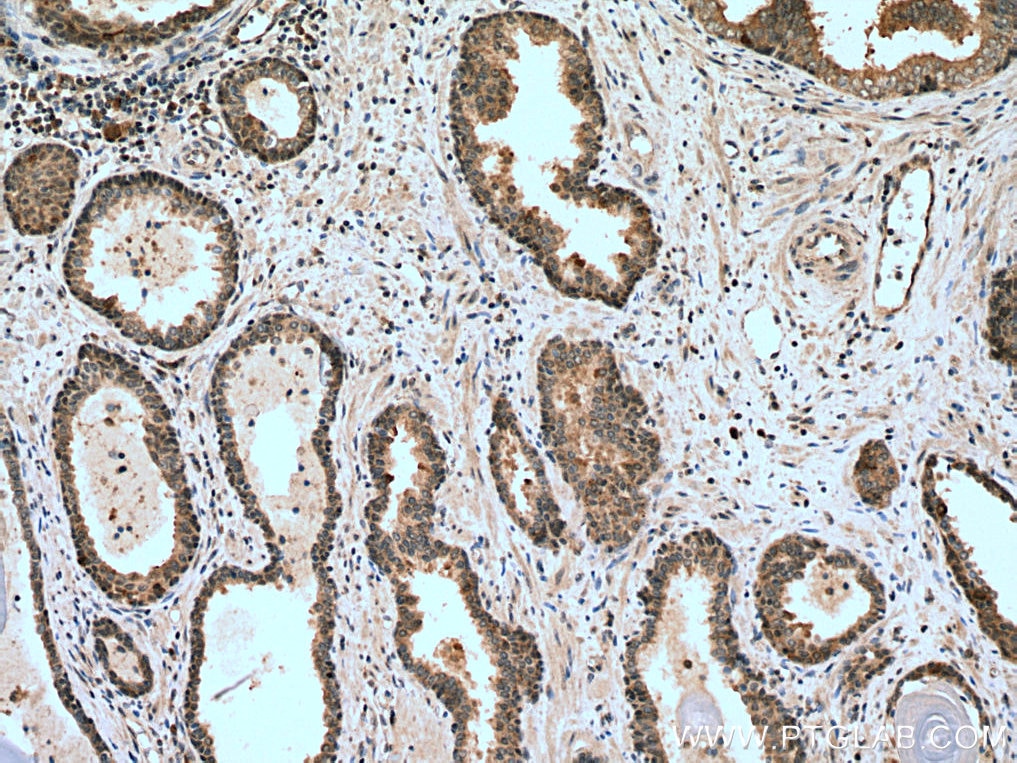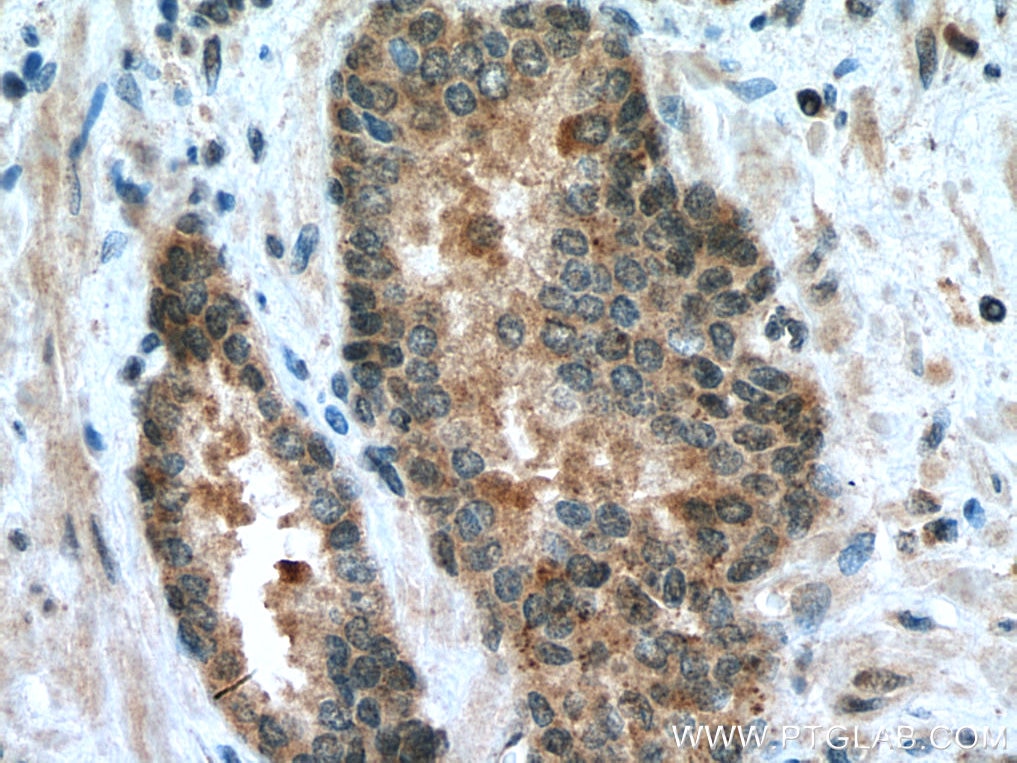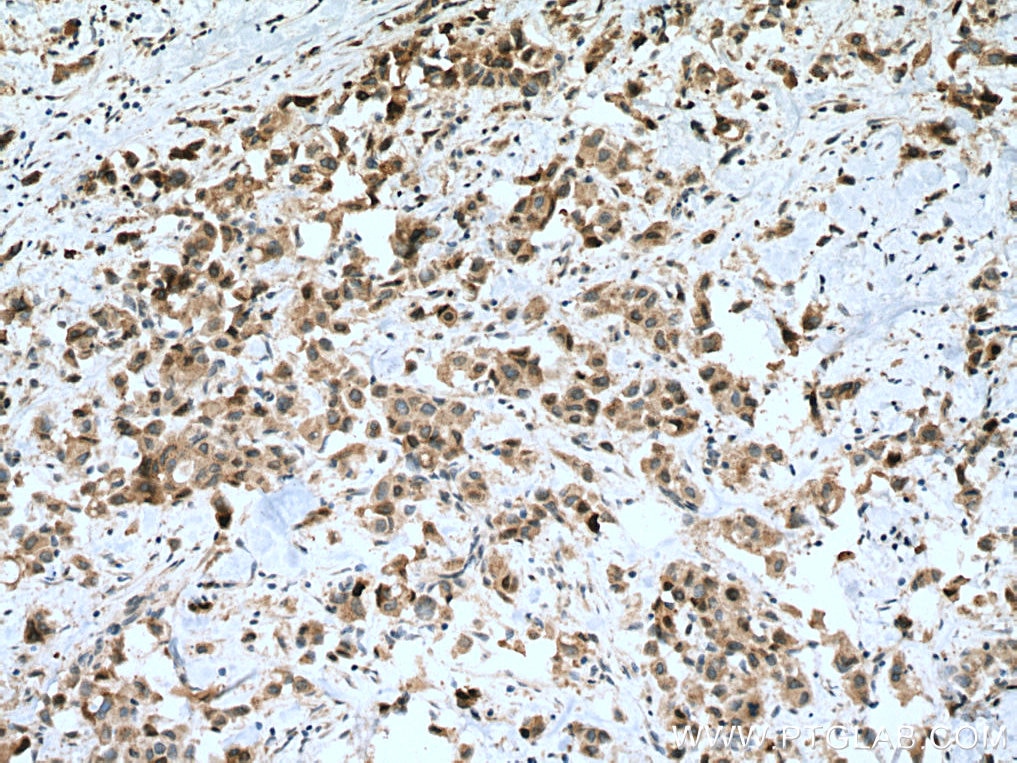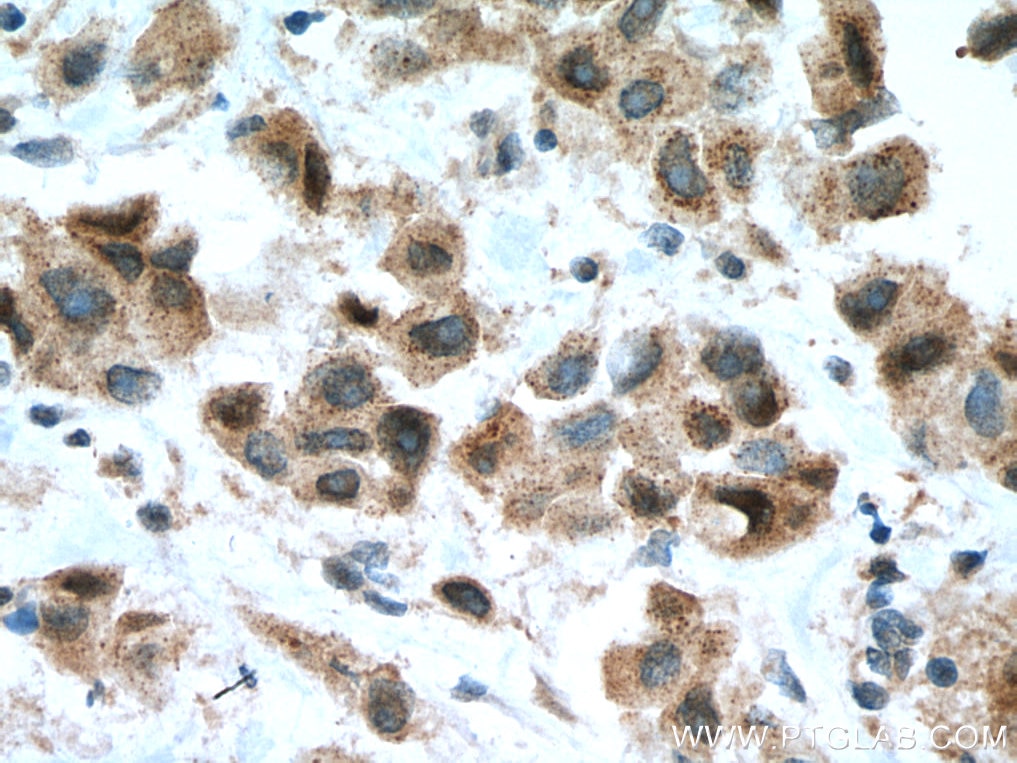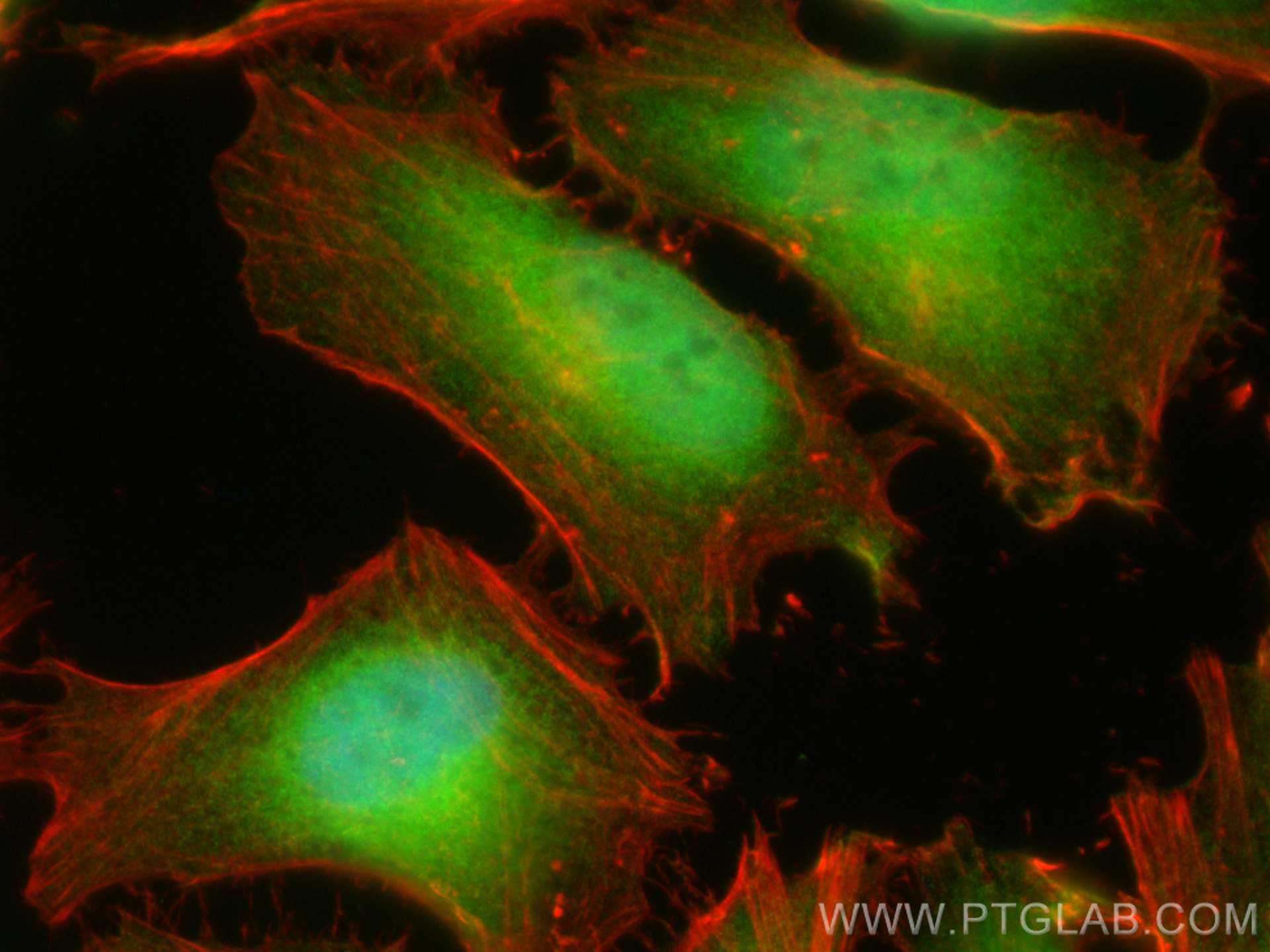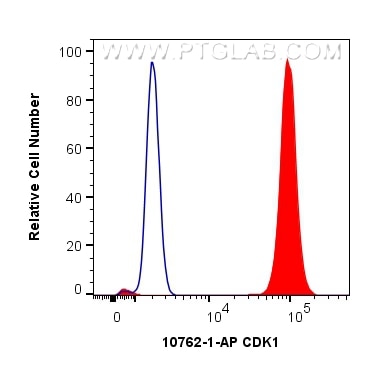- Phare
- Validé par KD/KO
Anticorps Polyclonal de lapin anti-CDK1
CDK1 Polyclonal Antibody for WB, IHC, IF/ICC, FC (Intra), ELISA
Hôte / Isotype
Lapin / IgG
Réactivité testée
Humain, souris et plus (1)
Applications
WB, IHC, IF/ICC, FC (Intra), ELISA
Conjugaison
Non conjugué
N° de cat : 10762-1-AP
Synonymes
Galerie de données de validation
Applications testées
| Résultats positifs en WB | cellule C2C12, cellules C2C12, cellules HeLa, cellules Jurkat |
| Résultats positifs en IHC | tissu de cancer de la prostate humain, tissu de cancer du sein humain il est suggéré de démasquer l'antigène avec un tampon de TE buffer pH 9.0; (*) À défaut, 'le démasquage de l'antigène peut être 'effectué avec un tampon citrate pH 6,0. |
| Résultats positifs en IF/ICC | cellules HeLa, |
| Résultats positifs en FC (Intra) | cellules HeLa, |
Dilution recommandée
| Application | Dilution |
|---|---|
| Western Blot (WB) | WB : 1:1000-1:4000 |
| Immunohistochimie (IHC) | IHC : 1:250-1:1000 |
| Immunofluorescence (IF)/ICC | IF/ICC : 1:200-1:800 |
| Flow Cytometry (FC) (INTRA) | FC (INTRA) : 0.40 ug per 10^6 cells in a 100 µl suspension |
| It is recommended that this reagent should be titrated in each testing system to obtain optimal results. | |
| Sample-dependent, check data in validation data gallery | |
Applications publiées
| WB | See 60 publications below |
| IHC | See 3 publications below |
| IF | See 2 publications below |
Informations sur le produit
10762-1-AP cible CDK1 dans les applications de WB, IHC, IF/ICC, FC (Intra), ELISA et montre une réactivité avec des échantillons Humain, souris
| Réactivité | Humain, souris |
| Réactivité citée | Humain, porc, souris |
| Hôte / Isotype | Lapin / IgG |
| Clonalité | Polyclonal |
| Type | Anticorps |
| Immunogène | CDK1 Protéine recombinante Ag1183 |
| Nom complet | cell division cycle 2, G1 to S and G2 to M |
| Masse moléculaire calculée | 25 kDa |
| Poids moléculaire observé | 34 kDa |
| Numéro d’acquisition GenBank | BC014563 |
| Symbole du gène | CDK1 |
| Identification du gène (NCBI) | 983 |
| Conjugaison | Non conjugué |
| Forme | Liquide |
| Méthode de purification | Purification par affinité contre l'antigène |
| Tampon de stockage | PBS avec azoture de sodium à 0,02 % et glycérol à 50 % pH 7,3 |
| Conditions de stockage | Stocker à -20°C. Stable pendant un an après l'expédition. L'aliquotage n'est pas nécessaire pour le stockage à -20oC Les 20ul contiennent 0,1% de BSA. |
Informations générales
CDK1, also named as CDC2, belongs to the protein kinase superfamily, CMGC Ser/Thr protein kinase family and CDC2/CDKX subfamily. CDK1 plays a key role in the control of the eukaryotic cell cycle. It is required in higher cells for entry into S-phase and mitosis. CDK1 is a catalytic subunit of the highly conserved protein kinase complex known as M-phase promoting factor (MPF), which is essential for G1/S and G2/M phase transitions of eukaryotic cell cycle. It is a component of the kinase complex that phosphorylates the repetitive C-terminus of RNA polymerase II. Mitotic cyclins stably associate with CDK1 and function as regulatory subunits. CDK1 has 2 isoforms produced by alternative splicing with the molecular mass of 34 kDa and 27 kDa. This antibody may have cross reaction with CDK2.
Protocole
| Product Specific Protocols | |
|---|---|
| WB protocol for CDK1 antibody 10762-1-AP | Download protocol |
| IHC protocol for CDK1 antibody 10762-1-AP | Download protocol |
| IF protocol for CDK1 antibody 10762-1-AP | Download protocol |
| Standard Protocols | |
|---|---|
| Click here to view our Standard Protocols |
Publications
| Species | Application | Title |
|---|---|---|
Biomed Pharmacother Osthole inhibits the PI3K/AKT signaling pathway via activation of PTEN and induces cell cycle arrest and apoptosis in esophageal squamous cell carcinoma. | ||
Mol Ther Nucleic Acids Inhibition of the lncRNA MIAT prevents podocyte injury and mitotic catastrophe in diabetic nephropathy. | ||
Cell Death Dis PFKFB3 blockade inhibits hepatocellular carcinoma growth by impairing DNA repair through AKT. | ||
Cancers (Basel) Extracellular Vesicle Delivery of TRAIL Eradicates Resistant Tumor Growth in Combination with CDK Inhibition by Dinaciclib. | ||
Life Sci Periplocin inhibits hepatocellular carcinoma progression and reduces the recruitment of MDSCs through AKT/NF-κB pathway |
